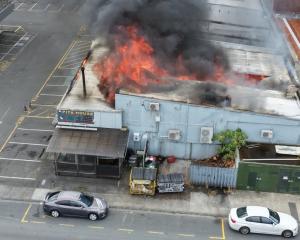Consumers will enjoy lower fuel prices over summer but must get used to long-term fluctuations in the fuel market, an industry watchdog says.
Fuel company Shell yesterday announced a 6c a litre drop for fuel at most outlets which meant 91 octane would sell in many places, including Dunedin, for $1.66 a litre, 95 octane for $1.71 and diesel for $1.25.
BP followed suit, dropping 6c a litre on the price of petrol and diesel, so most of its service stations matched Shell's pump prices.
BP management cited stabilising of the New Zealand dollar and a continued falls in oil prices as reasons for the drop, but warned the market remained volatile.
AA spokesman Mark Stockdale said the the moves were not a sign petrol would move closer to $1 than $2 a litre.
Price reductions were related to falling international demand for crude and refined oil and higher exchange rates.
Other factors, such as the usual fuel price drop over summer as demand declined during the northern hemisphere winter and reduced road and air travel because of the international financial crisis were also linked to yesterday's announcements.
"Prices of crude and refined oil have plummeted.
We can expect lower prices for the time being, continuing over summer.
There could be further reductions subject to the exchange rate, but these would only mean marginally lower prices," he said.
The continued growing demand from "substantial" economies such as China and India which had driven fuel price rises in the last two years would continue, and it could be years before investment in exploration by major oil companies led to production from new fields, alleviating current "static supply" problems.
While New Zealand pump prices were related to overseas trends, the link was "not as direct as people think".
"There are so many variables.
''Crude oil could drop by 10% overseas, but the effect here would be limited by exchange rate fluctuations and the tax component of fuel prices.
I think consumers will just have to get used to volatility," he said.
Since July 17, petrol has dropped 52c a litre and diesel 66c a litre.
Road Transport Association region 5 area manager Dave Potter, of Dunedin, said the association's 240 Otago and Southland members would welcome lower fuel prices.
The transport sector had been through a "tough few months" as higher fuel prices and introduction of increased road user charges for diesel vehicles combined to drive up costs, he said.
While RTA members would prefer stable fuel prices, they were realistic about the potential for rapid variation in future.
Recent fluctuations had forced the transport industry to "learn to live with sudden cost increases, and unexpected expenses".












